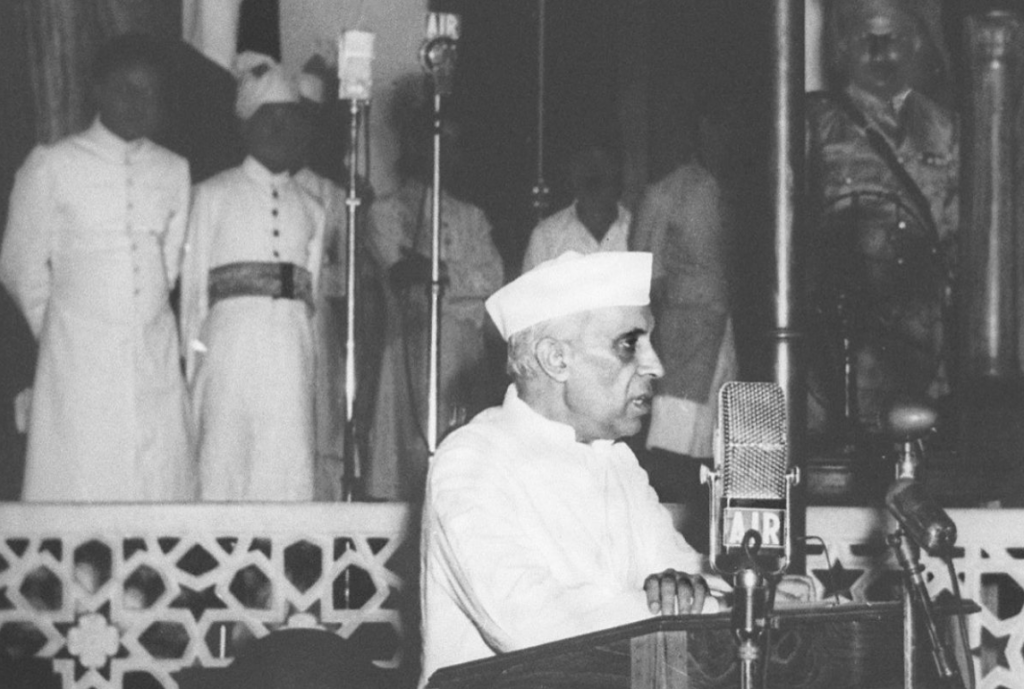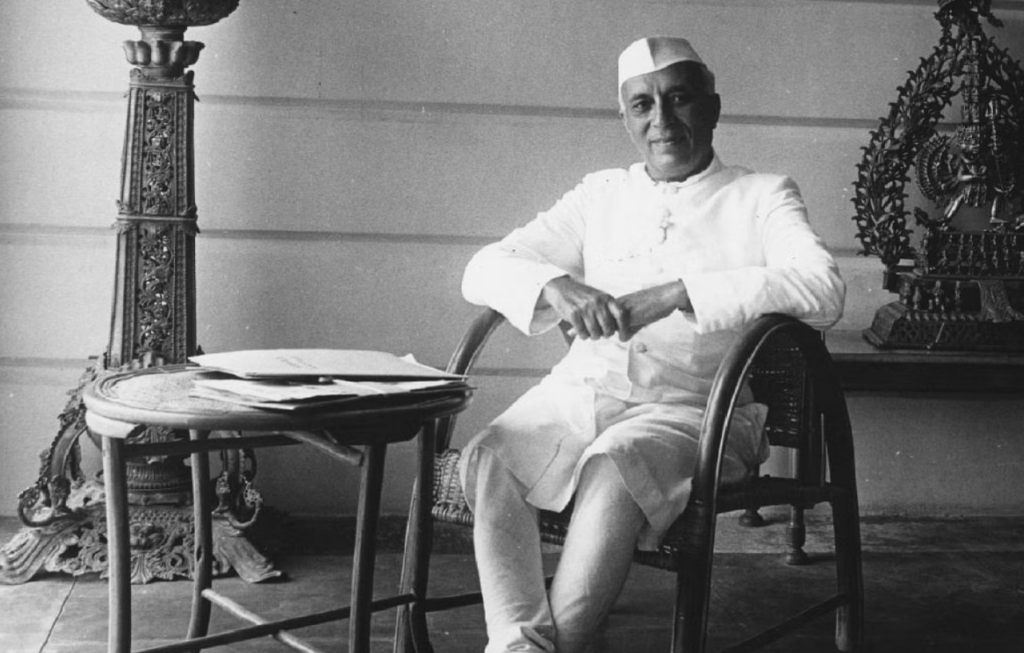Table of Contents
“At the stroke of the midnight hour when the world sleeps, India will awake to life and freedom.”
These resonant words were spoken by Jawaharlal Nehru on August 15, 1947, marking the very dawn of independence in India and underlining the absolutely key role he had played in shaping the nation. This is Nehru, who was known for his vision and leadership; his contribution to the liberation of India and subsequent nation-building was literally put into the cement of modern India. However, his legacy is not so straightforward, rather, it is interwoven with significant achievements and various controversies. And yet, the early years of Nehru were precursors to the character he portrayed as a politician.

As a child, he exhibited curiosity and an inclination toward leadership, which were encouraged by his family’s progressive ideals. His education both in India and Europe groomed his perception of the world and created a platform for a future role in Indian politics. This early promise reflected his potential to lead a nascent nation through its formative years.
This article summarizes the multifaceted legacy of Nehru through an investigation of the juxtaposition between his stellar public achievements and a rough private life, full of controversy. In doing so, we aim to frame a more rounded and balanced insight into the influence he cast on Indian history, one that evades sensationalism without brushing away either the contributions or complexities of his life.
Fact, Fiction, and National Identity
The heritage of Nehru as a Kashmiri Pandit has been represented in myriad ways. One version goes that his grandfather Ghiyasuddin Ghazi, after the suppression of the 1857 uprising by the British, changed his name to Gangadhar Nehru. While beautifully evocative, this account has little basis in fact and seems, as a story, to say more about the general colonial and post-colonial anxieties than historical reality. The reinterpretation of Nehru’s heritage often intersects with debates on identity and nationalism, showing how contemporary preoccupations shape historical narratives.

In contemporary India, the discourse on Nehru’s legacy meets broader debates on secularism and national identity. Nehru symbolized the ideals of secularism and the link between various communities because he attempted to unite his people irrespective of their religious or ethnic backgrounds. However, in the recent past, concerns with his legacy have been linked to political objectives and interests. Such narratives are a reminder of how our understanding of historical figures can be rewritten to serve contemporary ideological needs.
The Public vs. The Private
The personal life of Nehru has received more attention and tends to eclipse his public life. His marriage to Kamala Nehru, begun in 1916, was a union of mutual respect and intellectual companionship. Unfortunately, the long illness of Kamala kept her largely out of sight, leading to public speculation about Nehru’s private life. Notably, the close friendship between Nehru and Edwina Mountbatten, wife of the last British Viceroy, has formed the subject of several accounts. Though some believe a deep emotional involvement existed, this remains largely conjectural, to be considered in light of the immense personal and public pressures on Nehru.

It is a scrutiny that shows how public attitudes about the private lives of powerful men shape history itself. In reviewing these narratives, we see the gendered dynamics and societal expectations that help frame how public figures are remembered.
Power, Politics, and Personal Allegations
The controversial narratives over the personal and political life of Nehru further complicate his legacy. One such story is that of an alleged illegitimate child with Shraddha Mata, a sannyasin from Banaras, said to be born in 1949. While these allegations were mentioned by Nehru’s private secretary M.O. Mathai, they remain unproven and have been largely dismissed as part of scandal mongering. It’s important to critically assess the source of these claims and the role they play in shaping the afterlife of Nehru’s persona.

Various allegations of political manipulation have also formed the basis on which Nehru’s career has been investigated. Rumors suggest that Nehru utilized his influence to remove political rivals, most notably Subhas Chandra Bose and Dr. Shyama Prasad Mukherjee, both of whom died under mysterious and sudden circumstances. These accusations reflect the intense political rivalries of Nehru’s time and the multidimensional nature of power struggles in Indian politics. A deeper look at the context behind these accusations offers insight into the political contingencies that shaped Nehru’s leadership.
The Sino-Indian War
Nehru’s foreign policy leading up to the 1962 Sino-Indian War presents another facet of his complex legacy. While commitment to non-alignment and peaceful coexistence faced stiff challenges during border disputes with China, the undue optimism of Nehru on the respect of Chinese leadership toward Indian sovereignty and underestimation of the Chinese intention itself was also a contribution to the conflict. Due to a lack of preparedness on military grounds and strategic errors, an overwhelming defeat at the hands of the Chinese military exposed the limitation of Nehru’s foreign policy approach.

The Sino-Indian War remains a critical milestone in the assessment of Nehru’s leadership. This war not only put to test his vision of peaceful diplomacy but also brought out the difficulties that leaders faced navigating international relations in a newly independent nation. In balance, the event contributes to an insight into the complexity of Nehru’s foreign policy and turmoil of leadership during times of national growth.
Making of Historical Memory
The historical memory of Nehru is constituted by an interplay between fact-based achievements and sensationalist accounts. Stories such as those surrounding Mirganj in Allahabad, popularly referred to as a brothel, illustrate how certain tales can become symbolic in debates relating to Nehru’s moral character. These narratives shape public perceptions and form part of the greater cultural memory. It is essential to interrogate how such sensationalism can skew historical narratives and contribute to public memory.
These two aspects of Nehru’s legacy-those shaped by his contribution to the independence and development of the country, and those which remain soaked in controversies and sensationalism-have been fruitfully tempered into a nuanced investigation, which better reflects shades of gray in this pivotal figure and his impact on Indian history. Nuance allows us to weigh pros and cons about his impact on Indian history.

It is a reassessment of Jawaharlal Nehru’s life and legacy, immensely contributory to his country, yet very complex. The interplay between his public achievements and personal controversies underlines the necessity of regarding historical personages in all their integrity. Indeed, any exploration in proper balance and depth into Nehru’s complex legacy will give us better insight into his contribution to the building of modern India. This perspective invites us to reflect critically upon how we remember and narrate history in light of the complexities of leadership, power, and legacy.
We invite reflections on Nehru’s legacy and how we make meaning of historical characters. Write to us at [email protected] with your insights and submissions. A set of diverse perspectives will, thus, help enrich our understanding of history too!